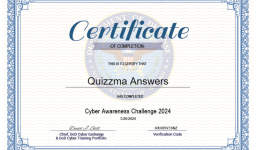- 11th Grade
- Lexile: 1370
Source: Excerpt from The Prince by Niccoló Machiavelli
Assessment Answers
| Question | Answer |
|---|---|
| Summarize Machiavelli’s beliefs about what makes a great leader. | Machiavelli’s beliefs about what makes a great leader, as presented in this excerpt from “The Prince,” focus on the balance between being feared and loved, and the effective use of cruelty and clemency. Here’s a summary of his key points: Clemency vs. Cruelty: Machiavelli argues that a prince should strive to be seen as clement (merciful) and not cruel. However, he cautions against the misuse of clemency. He believes that controlled cruelty, used judiciously, can be effective in unifying and pacifying a state, as exemplified by Cesare Borgia’s actions in Romagna. Being Feared vs. Being Loved: Machiavelli raises the question of whether it’s better for a leader to be loved or feared. He acknowledges the ideal would be to be both, but recognizes the difficulty in achieving this. He concludes that if one must choose, it is safer to be feared than loved. This is because, according to Machiavelli, men are naturally fickle, ungrateful, and selfish. Fear of punishment, he argues, is a stronger motivator than love or loyalty. Avoiding Hatred: While advocating for inducing fear, Machiavelli also warns against being hated. He advises a prince to abstain from taking the property of his subjects or harming their women, as these actions are likely to breed hatred. He also emphasizes the importance of justifying any severe actions taken. Military Leadership: Machiavelli notes that in the context of leading an army, a certain level of cruelty is necessary to maintain discipline and unity. He uses the example of Hannibal, whose effectiveness was partly due to his inhuman cruelty, which inspired both fear and respect in his troops. Avoiding Excessive Leniency: Machiavelli contrasts cruelty with excessive leniency, using Scipio as an example of a leader whose forbearance led to indiscipline and rebellion within his ranks. He suggests that excessive leniency can undermine a leader’s authority and effectiveness. |
| How does the following line from paragraph 1 contribute to the development of ideas in the passage ?: “Therefore a prince, so long as he keeps his subjects united and loyal, ought not to mind the reproach of cruelty; because with a few examples he will be more merciful than those who, through too much mercy, allow disorders to arise, from which follow murders or robberies; for these are wont to injure the whole people, whilst those executions which originate with a prince offend the individual only.” | It emphasizes his point that sometimes leaders must be cruel to maintain order. |
| PART A: What does the word “upbraided” mean as it is used in paragraph 4? | reprimanded or criticized |
| PART B: Which phrase from paragraph 4 best supports the answer to Part A? | “called the corrupter.” |
According to Machiavelli, what is the relationship between fear and hate? Cite evidence.
According to Machiavelli, the relationship between fear and hate is nuanced. He argues that while a prince should seek to be feared, he must be careful not to be hated.
Machiavelli posits that fear can be a useful tool for a ruler to maintain order and respect, but hate is dangerous and can undermine a ruler’s power.
Evidence from the text includes:
- Fear as a Tool for Order: Machiavelli states, “it is much safer to be feared than loved, when, of the two, either must be dispensed with.” This suggests that fear is a more reliable means of maintaining control and loyalty, as it does not rely on the variable affections of the people.
- Avoiding Hatred: Despite advocating the use of fear, Machiavelli warns against being hated. He advises, “a prince ought to inspire fear in such a way that, if he does not win love, he avoids hatred; because he can endure very well being feared whilst he is not hated.” This distinction is crucial in his philosophy. Fear should be used as a tool, but it should not cross into actions that would cause the ruler to be hated.
- Actions That Lead to Hate: Machiavelli outlines specific actions that a ruler should avoid to prevent being hated: “he abstains from the property of his citizens and subjects and from their women.” By refraining from these actions, a ruler can maintain fear without inciting hate.
- Justification of Harsh Actions: Even when a ruler must take harsh actions, Machiavelli argues that these should be justified: “But when he must proceed against the life of someone, he must do it on proper justification and for manifest cause.” This proper justification helps to mitigate the risk of hatred.
Machiavelli views fear as an effective tool for maintaining control and respect, but he also stresses the importance of avoiding hatred.
He advises rulers to use fear judiciously and refrain from actions likely to make them hated. This balance is key to maintaining power and stability.
Discussion Answers
Is it possible for someone to be in power if the people do not fear him? Explain your answer.
Yes, it is possible for someone to be in power without being feared by the people, although Machiavelli’s perspective in “The Prince” emphasizes the utility of fear in maintaining power. The feasibility of ruling without fear depends on various factors, including the nature of the leadership, the societal and cultural context, and the alternative mechanisms of maintaining authority and respect. Here are a few points to consider:
- Leadership Based on Respect and Legitimacy: A leader can maintain power through respect, moral authority, and legitimacy. If people believe in the leader’s vision, ethics, and competence, they may support and follow the leader without fear. Respect can be a powerful motivator and can foster a more cooperative and positive relationship between the leader and the populace.
- Democratic and Participatory Systems: In democratic systems, leaders are often in power not because of fear but due to the mandate given by the electorate. The power is derived from the consent of the governed, and leaders are held accountable through elections and legal frameworks. In such systems, fear is less of a factor, and power is more about representation and accountability.
- Cultural and Societal Norms: Different cultures and societies have varying attitudes towards authority and power. In some cultures, a more paternalistic or benevolent leadership style may be valued over a fear-based approach. In these contexts, leaders can maintain power through other means like charisma, wisdom, or moral leadership.
- Alternative Methods of Influence: Leaders can also use other tools like persuasion, diplomacy, and incentives to maintain power and influence people. These methods rely more on positive reinforcement and mutual benefit rather than fear.
- Historical Examples: History provides examples of leaders who maintained power without resorting to fear. These leaders often relied on their charisma, the justness of their policies, their ability to inspire, and their skill in addressing the needs and aspirations of their people.
While fear can be a tool for maintaining power, as Machiavelli suggests, it’s not the only method. Power can be maintained through a variety of means, including respect, legitimacy, democratic principles, cultural norms, and other forms of influence.
Is it possible to fear someone without hating him? Explain your answer.
Yeah, totally, it’s possible to fear someone without hating them. Like, think about how some students feel about strict teachers. You might fear a teacher because they’re super tough on grading or really strict with rules, but that doesn’t mean you hate them. You might actually respect them because you know they’re trying to make you better, or you might even like how fair they are even though they’re strict.
Or consider famous athletes or celebrities. Some people might fear meeting them because they’re like, really impressive and kinda intimidating, but that doesn’t mean they hate them. It’s more like they’re in awe of them.
In both cases, the fear doesn’t come from a bad place; it’s more about respect or being overwhelmed by someone’s presence or abilities. So, yeah, you can definitely fear someone without hating them. It’s all about why you fear them and how you see them aside from that fear.
What ethical dilemmas might a leader face? Explain your answer.
Alright, so leaders definitely face a bunch of ethical dilemmas. Here are a few examples:
- Balancing the Good of the Many vs. the Rights of the Few: This is like the classic dilemma. A leader might have to make a decision that’s good for the majority of people but could negatively affect a small group. Like, say a mayor has to decide whether to build a new highway. It could help a lot of people get around easier, but it might also mean tearing down a few homes. The leader has to figure out what’s the fairest decision.
- Honesty vs. Keeping Things Under Wraps: Leaders often have to decide how much truth to tell the public. Like, if there’s a scary situation, a leader might not want to cause a panic, so they might not give out all the details. But then, is that lying? Or just being responsible? It’s a tough call.
- Personal Gain vs. Public Good: This one’s a biggie. Leaders might have opportunities to make decisions that could benefit them personally, like financially. But is that fair to everyone else? They have to constantly check themselves to make sure they’re not just looking out for number one.
- Enforcing Laws vs. Compassion: Sometimes, leaders are in situations where they have to enforce laws, but those laws might seem harsh in certain situations. Like, should a leader deport someone who’s technically breaking immigration laws but is a good person and contributes to the community? It’s hard to balance being lawful with being compassionate.
- Decision Making in Crises: In emergencies, leaders have to make quick decisions, and they might not always have time to think about all the ethical implications. Like, during a natural disaster, a leader might have to prioritize which areas to send aid to first, and that could mean some people have to wait longer for help.
In all these dilemmas, leaders have to juggle what’s right, what’s fair, and what’s best for the most people. It’s definitely not easy, and no matter what they decide, someone might disagree. But that’s part of being a leader – making those tough calls and dealing with the consequences.
Are ethics the same for a leader as they are for you and me? Explain your answer.
Okay, so the question about whether ethics are the same for a leader as they are for you and me is pretty interesting. In one way, yeah, the basic principles of ethics – like honesty, fairness, and not harming others – apply to everyone, leaders included.
We all learn these kinds of moral values, like not lying or cheating, and they’re expected no matter who you are.
But when you’re a leader, these ethics can get more complicated. Like, as a regular person, if you tell a white lie to avoid hurting a friend’s feelings, it’s not a big deal. But if a leader does that in a public setting, it could have huge consequences, like people losing trust in them or it affecting a bunch of people’s lives.
Leaders also have to think about stuff we don’t usually deal with, like making decisions that affect tons of people. Their ethical choices often have way bigger impacts. If I make a choice, maybe it affects my friends or family, but a leader’s choice could affect a whole country or company.
So, while the basic ethics are the same – like being honest and fair – the scale and impact of a leader’s decisions put their ethical choices under a much bigger microscope.
They have to think about the greater good and how their actions will affect lots of people, not just themselves or a few individuals.
They’re often held to higher standards because they’re in the public eye and have more responsibility.
In what real-life scenarios do you see Machiavelli’s advice playing out, either positively or negatively?
Machiavelli’s advice from “The Prince,” especially around the use of fear, power, and ethical flexibility, can be seen in various real-life scenarios, both positively and negatively:
- Political Leadership: In politics, leaders often have to balance being feared and loved. Some politicians use tough stances or strict policies to gain respect and maintain order, kind of like Machiavelli’s advice. But if they go too far, they might end up being hated or causing unrest, which is the negative side of this. For instance, leaders who impose strict laws to reduce crime might see success (positive) but could also face backlash if the public sees these measures as too harsh or unfair (negative).
- Business Management: CEOs and business leaders sometimes adopt Machiavellian strategies. They might make tough decisions, like layoffs or strict company policies, to keep the company strong or profitable. This can be seen as positive if it leads to the company’s success and job security for remaining employees. However, it’s a negative outcome if employees feel mistreated or if the company culture becomes toxic due to fear.
- Military Strategies: Military leaders often follow Machiavellian principles, especially the idea of being feared to maintain discipline and authority. This can be effective in keeping order and achieving objectives (positive). However, if a leader is too harsh, it can lead to low morale and disrespect among the troops (negative).
- Sports Coaching: Some coaches use a strict, authoritative style, hoping to instill discipline and improve performance, which can be successful (positive). But if they push too hard, they might lose the trust and motivation of their players (negative).
- Authoritarian Regimes: Unfortunately, the darker side of Machiavelli’s advice is evident in authoritarian regimes. Leaders who rule with an iron fist, suppressing dissent and ruling through fear, might maintain power and order (which they might view as positive), but at the cost of human rights and freedom (definitely negative).
In each scenario, Machiavellian tactics’ effectiveness and ethical implications can vary greatly. While sometimes effective in achieving certain goals, they can also lead to negative consequences like loss of trust, resentment, and ethical breaches.
Does power corrupt? Use evidence from this text, your own experience, and other art, history, or literature in your answer.
The question of whether power corrupts is a classic one, and Machiavelli’s “The Prince” definitely touches on this idea. From the text, we can infer that Machiavelli believes power can lead to corruption, but it’s more about how the leader handles power.
He suggests that a ruler can use power (and even acts of cruelty) for the greater good, but there’s a fine line – it’s easy to go overboard and become corrupt.
From personal experience, we’ve all seen situations where someone gets a little bit of power and starts acting differently, right? Like maybe a friend becomes the captain of a sports team and suddenly starts bossing everyone around. It’s not always the case, but sometimes, people change when they get power.
There are tons of examples in history and literature. In “Animal Farm” by George Orwell, the pigs start off wanting to create an equal society, but once they get power, they become just as corrupt as the humans they overthrew.
Or think about historical figures like Julius Caesar – he started as a popular military leader and ended up being assassinated because he accumulated too much power and his rivals feared he was becoming a tyrant.
But it’s not always so black and white. Some leaders, like Nelson Mandela, had a lot of power but used it to unify and heal. So, it seems like power doesn’t necessarily corrupt by itself – it’s more about who’s in power and how they handle it. Some people let it go to their heads and start making selfish or harmful decisions, but others use their power to do good stuff.
You Might Be Interested In:
– The Cask Of Amontillado CommonLit Answers
– Allegory Of The Cave CommonLit Answers
– What Makes Good People Do Bad Things CommonLit Answers




Leave a comment